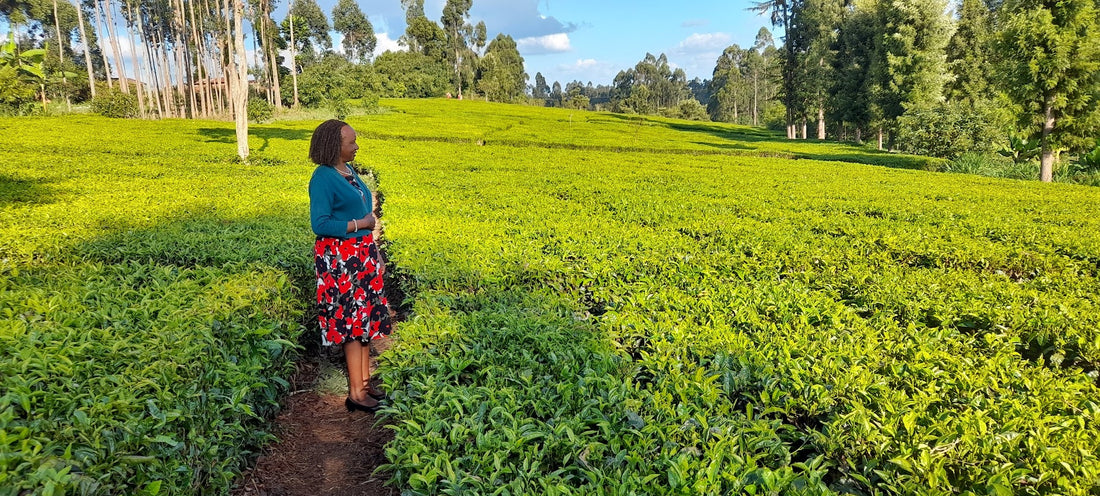Over the years, we have developed strong relationships with a core group of tea producers, mainly in India and Africa. It’s always a pleasure when we get to take a trip. Recently, Graeme, our Head of Tea and Infusions visited the East Rift of Kenya and spoke to Nancy, Chair of Nduti, who produce some spectacular teas. We chatted about being a female leader in the industry and why Kenyan tea is so good…
How long have you worked in the tea industry?
2 years, although I have been a tea farmer for over 10 Years.
What attracted to you to work in the tea industry?
First of all, I am a tea farmer. However, due to my experience and exposure of working in the corporate world, I felt I would add value and also help the ordinary tea farmer by being in leadership at my Tea Factory. I was also encouraged and supported by other women in leadership positions.
Tell us about your background? How did you go from tea farmer to tea leader?
I am a University graduate with majoring in Business Administration and Marketing. I have held Leadership positions in the various organisations that I worked in where my last position before taking early voluntary retirement was Finance and Adminstration Director.
Leadership in the Tea Sector has been a domain for men where women have shied away from taking leadership because one has to go for competitive elections. Initially I had been encouraged by a Lady in the Tea Sector to apply to be nominated to represent Women but when I was denied this opportunity I decided to go for elections where I was vying against men and I was elected with overwhelming votes.
What’s the most important aspect of your role?
As Chair of the Board, I provide leadership and inspire both the Board and the workers at the Factory.
As a female leader, I am more driven to making a difference in the livelihood of the ordinary tea farmers who work so hard and under difficult circumstances, to put food on the table and educate their children. I am also results driven and will go the extra mile to achieve results in everything that I engage in.
Our intention is to ensure that we increase the money that gets to the pockets of the farmers by reducing the cost of production and looking for higher prices for our tea. We have been educating our farmers on better tea husbandry so as to increase the quality of our tea which would in turn fetch better prices in the market. We are also advocating for ownership of tea bushes by women so that they are able to chart their destiny by joining leadership positions
What is so special about Kenyan tea?
The climate and geographic location. Tea is grown on the slopes of the Abedares ridges – at high altitude. The deep reddish soil is high in mineral contents – which produces high anti-oxidant properties in the tea.
We also carefully select the tea – hand picking only taking the top two leaves on the bud.
This means the tea has a distinctive taste, quality and characteristics – brisk and full bodied flavour and great with milk.
What’s the single most interesting thing you know about tea?
Tea is brisk and makes us happy and lively.
Shop Gold, our leaf lock Gold tea made with tea grown in the East Rift Valley.
